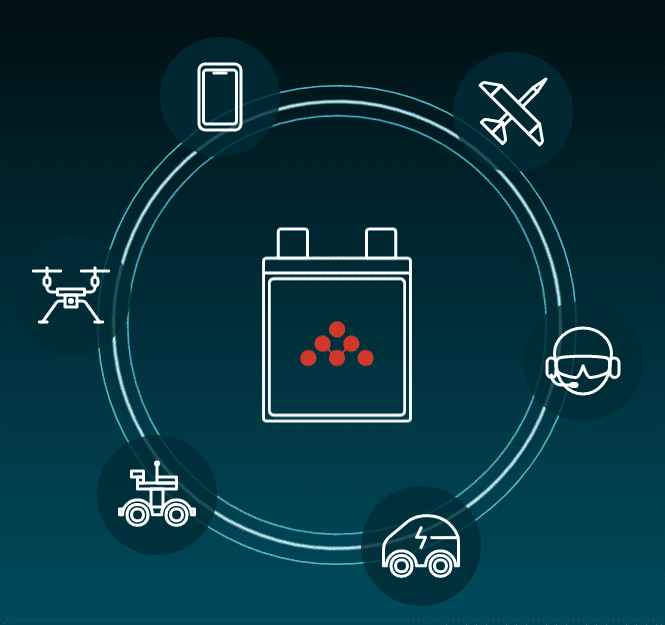
Amprius and BAE Systems are collaborating to evaluate potential business opportunities for the batteries developed by Amprius. (Photo: Amprius)
Amprius Technologies recently entered into an agreement with BAE Systems for a three-year cooperation. The companies will evaluate potential business opportunities for the silicon nanowire anode batteries developed by Amprius to be used in electric products developed by BAE Systems.
Dr. Kang Sun, CEO of Amprius, remarked on the new cooperation agreement, saying, “BAE Systems is at the technological forefront of the defense industry, and this agreement validates the potential of our silicon nanowire anode technology for rigorous aerial applications.”
Ronnie Tao, Vice President of Business Development at Amprius, remarked that BAE Systems will be using Amprius’s batteries throughout BAE’s portfolio of products. “It’s not specifically tied to one product, although there are products that we are being designed into,” he explained in an interview with Avionics International.
Tao also noted that while today’s battery technology is effective, it doesn’t offer enough power to effectively enable business cases. “Our batteries are the first ones to really open up the entire aviation electrification segment,” he claimed.
One of the key advantages of the batteries that Amprius develops is high energy density. The silicon nanowire battery technology contributed to the success of the Airbus Zephyr unmanned aerial system (UAS). The Airbus Defence and Space division awarded Amprius with the Innovative Supplier Award in 2021.

“We’re keen to work with [Amprius] to explore opportunities for the electric products that we’re developing for military applications.” – Dave Holmes, Advanced Projects, Technology and Manufacturing Director at BAE Systems’ Air (Photo: Amprius)
The team at Amprius is now focused on scaling up production. “Research and development efforts are done,” Tao shared. “We are a technology readiness level 9 company, meaning the technology has already been proven out. There’s no need to keep tweaking it. The demand for our product is so high that we need to get it to market quickly.”
Tao views the regulatory environment as one of the biggest obstacles to electrification of the aviation industry. Achieving certification for an aircraft or use case in one country does not necessarily guarantee certification in another country. He has observed that many companies are focusing initially on regulations for just one country because there isn’t a global consensus yet. Eventually, these issues will be addressed, he said; “it’s just a matter of the regulations catching up to the innovation that is actually happening.”
For some of the new entrants to the aviation industry, such as electric vertical take-off and landing (eVTOL) aircraft, there are very high power requirements. “The battery system needs to be able to produce a lot of power,” Tao said. “The discharge rate needs to be very, very high. Most solutions are not capable of doing that.”
Amprius’s technology, on the other hand, has the necessary capabilities to enable eVTOLs to take off and land. “We are by far the most advanced lithium ion battery available in the market,” he claimed, adding that their products increase performance significantly. Using batteries developed by Amprius can double the maximum flight time of an aircraft, for example, and it has the potential to double the payload capacity for a delivery drone.
Amprius recently conducted a demonstration of the charging capabilities of its batteries. The Aviation High Power Fast Charge Cell was tested in order to demonstrate that it can be repeatedly charged from 0% to 80% in less than six minutes.